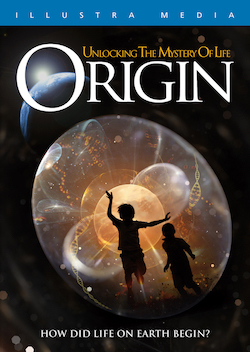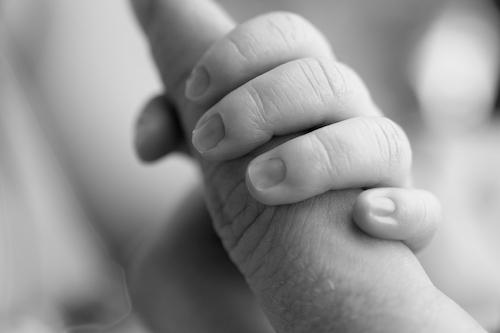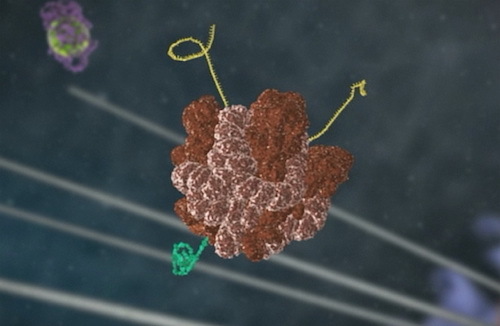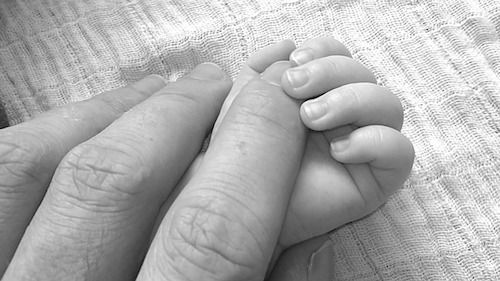Discovery Institute's Blog, page 35
October 3, 2016
In a New Documentary, Origin, Paul Nelson and Ann Gauger Confront the Enigma of Chemical Evolution
Materialist accounts of origins face a dual challenge -- biological evolution and chemical evolution. The latter describes the problem of generating life from nonlife in the hostile environment of the early Earth. To call that problem overwhelming, given the resources of matter and energy alone -- in other words, blind churning -- doesn't begin to do it justice. It doesn't even begin to begin.
 That's the takeaway from an effective new documentary from Illustra Media, Origin: Design, Chance a...
That's the takeaway from an effective new documentary from Illustra Media, Origin: Design, Chance a...
October 2, 2016
Threat of Canadian Tyranny Against Catholic Hospitals

Once euthanasia forces no longer have to contend with democracy, they show their true authoritarian colors. Canada's Supreme Court took democracy out of the death equation by conjuring a "right" to be made dead under very broad circumstances.
Now, pressure is starting to force religiously affiliated medical institutions and doctors to kill. After a Catholic hospital refused to euthanize a patient, who apparently received inadequate pain relief in the process of transfer, calls are being sou...
October 1, 2016
How We Feel: The Sensation of Touch

On a new episode of ID the Future, Sarah Chaffee talks with Center for Science & Culture Senior Fellow and physician Geoffrey Simmons about the design behind the sense of touch.
Download the episode by clicking here:
We're now seeing attempts to mimic the natural phenomenon of touch in medical technology -- including a DARPA project that seeks to develop a prosthetic hand that can feel. Dr. Simmons explains how touch works, and examines the possibility of scientists being able to imitate...
September 30, 2016
With More Information About the Royal Society Meeting, Let's Not Boost Expectations Too High
Cool. The abstracts for the anticipated upcoming meeting of the Royal Society in London, "New trends in evolutionary biology: biological, philosophical and social science perspectives," are now available.
The descriptions don't give a sense of what kind of fireworks to expect, if any. Of course, they're purposely written in anodyne prose -- no bomb-throwing. Like this from Gerd Mller, associated (like others organizers) with the Third Way of Evolution, who has spoken about "replac[ing] the M...
With More Information About the Royal Society Meeting, Let's Not Raise Expectations Too High

Cool. The abstracts for the anticipated upcoming meeting of the Royal Society in London, "New trends in evolutionary biology: biological, philosophical and social science perspectives," are now available.
The descriptions don't give a sense of what kind of fireworks to expect, if any. Of course, they're purposely written in anodyne prose -- no bomb-throwing. Like this from Gerd Mller, associated (like others organizers) with the Third Way of Evolution, who has spoken about "replac[ing] the M...
September 29, 2016
A Trigger Warning for Criticisms of Darwinism?

At the Huffington Post, psychologist David Moshman reviews two new books on academic freedom: Unsafe Space, and Academic Freedom in an Age of Conformity (I have not read either). Reflecting on these books, Moshman, an emeritus professor at the University of Nebraska-Lincoln who describes himself as an "intellectual freedom activist," notes that the idea of intellectual freedom is based on a recognition that there's such a thing as objective truth. Of course, the same is true of good science....
Brangelina Fever Gets Its Own Darwinian Just-So Story
Darwinists love just-so stories. Why are cheetahs fast? Because natural selection preferred the slightly faster cheetah ancestors, thanks to the fast cats being able to catch more prey and impress the lady cats. Why are turtles slow? Well, maybe being fast was a waste of energy, so turtle evolution at some point wandered down an evolutionary alley committed to a defensive strategy that, et cetera, et cetera.
Why are chimps clever? Because being clever gave their ancestors a survival advantag...
Look at All that Goes into Translating a Gene

In Nature, Marlene Oeffinger gives readers a tour of the ribosome, in particular how it is built. This wonder of the cell translates messenger RNA into proteins. Prepare to be astonished. Here’s the overture:
Production of the cell's translational apparatus, the ribosome, requires the orchestrated function of hundreds of proteins. A structure of its earliest precursor yields unprecedented insight into ribosome formation. [Emphasis added.]
For the first movement, she calls forward an ensemble...
September 28, 2016
Sociological Survey Confirms the Dangers of a "Biological" View of Humanity

Over the years I have written books and articles explaining how scientific materialism and Darwinism have had a dehumanizing impact on us (most recently, in The Death of Humanity: And the Case for Life, which includes a couple of chapters dealing with Darwinism and other chapters dealing with materialist philosophies more generally). I am persuaded that viewing humans as merely a chance conglomeration of chemicals thrown together over eons has profound implications for how we treat each othe...
Three-Parent Baby Shows No Limits to Science Hubris

Fertility doctors have brought a baby to birth from an embryo created artificially with the biological substances of two women and one man.
That could be illegal in many places, so the American doctors went to Mexico to do the procedure. From the Science story:
[Dr. John Zhang of New Hope Fertility Center in New York] reportedly used an approach called spindle nuclear transfer to create five human embryos. The method involves removing the nucleus -- the bulk of a cell's DNA -- from one of t...
Discovery Institute's Blog
- Discovery Institute's profile
- 15 followers






